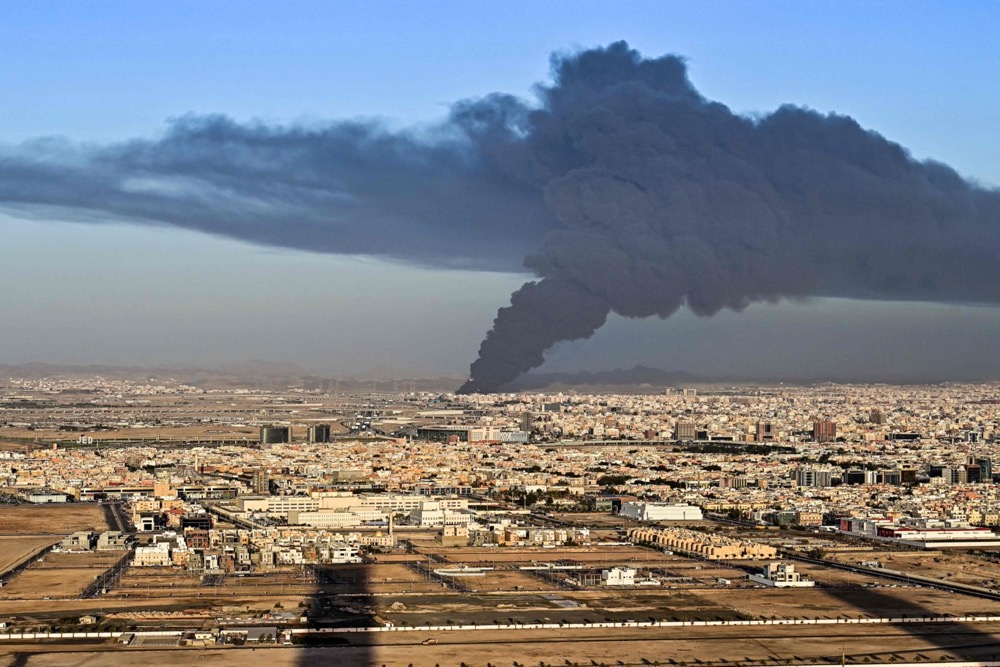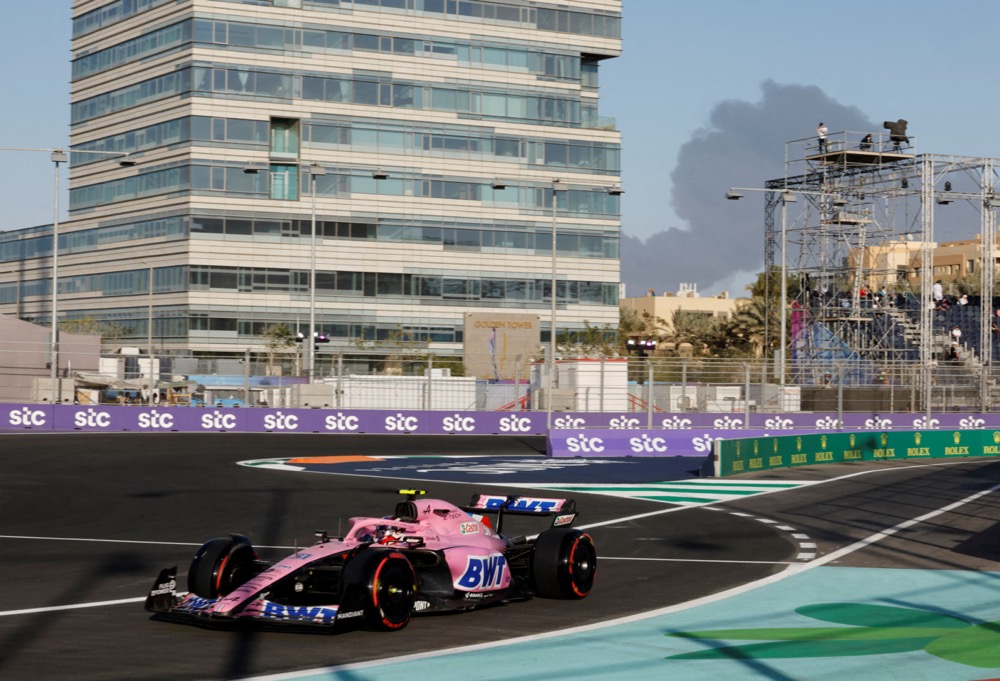JEDDAH: The Iran-backed militia in Yemen were accused on Friday of threatening global energy security with a wave of drone and missile attacks on oil facilities in the Kingdom.
A huge fire erupted at an Aramco oil storage facility in Jeddah after one attack.
Plumes of black smoke rose over the city and were visible to drivers practicing for the Formula 1 Grand Prix motor race at the Jeddah Corniche circuit.

Smoke from the site could be seen across the city on Friday. (AFP)
F1 authorities said the race would go ahead on Sunday as planned.
The Coalition to Restore Legitimacy in Yemen said the fire in two tanks at the North Jeddah oil facility had been brought under control, and there were no casualties.
Coalition spokesman Brig. Gen. Turki Al-Malki said: “This hostile escalation targets oil facilities and aims to undermine energy security and the backbone of the global economy. These hostile attacks had no impact or repercussions in any way, shape or form on public life in Jeddah.”
The US State Department condemned the Houthi attacks as “unacceptable.”
British Prime Minister Boris Johnson also slammed the attacks. “These strikes put civilian lives at risk and must stop,” he said.
Earlier, Saudi air defenses forces destroyed seven drones and a missile launched by the Houthis targeting the southern part of the Kingdom. The attacks deliberately targeted civilian areas and energy installations, the coalition said, and threatened both regional and international security.
Last weekend a Houthi assault on the Kingdom caused a temporary drop in output at a refinery and a fire at a petroleum products distribution terminal. On March 11, the group targeted a refinery in Riyadh, causing a small fire.
Saudi Arabia said after those attacks that it would bear no responsibility for any shortage of global oil supplies caused by Houthi attacks, and the Saudi Energy Ministry restated that view on Friday.
The North Jeddah plant stores diesel, gasoline and jet fuel for use in the city. It accounts for over a quarter of Saudi Arabia’s supplies and also provides fuel for a desalination plant.
The Houthis have twice targeted the plant with cruise missiles, once in November 2020 and most recently last Sunday. A UN panel of experts on the war in Yemen described it as a “civilian target.”

Plumes of smoke were visible to drivers practicing for the Formula 1 Grand Prix motor race at the Jeddah Corniche circuit. (Reuters)
“While the facility also supplies the Saudi military with petroleum products, it is mostly supplying civilian customers,” the panel said.
“If it had been out of service for a significant period, the impact on the Kingdom’s economy and the welfare of the residents of the western region would probably have been significant.”
















